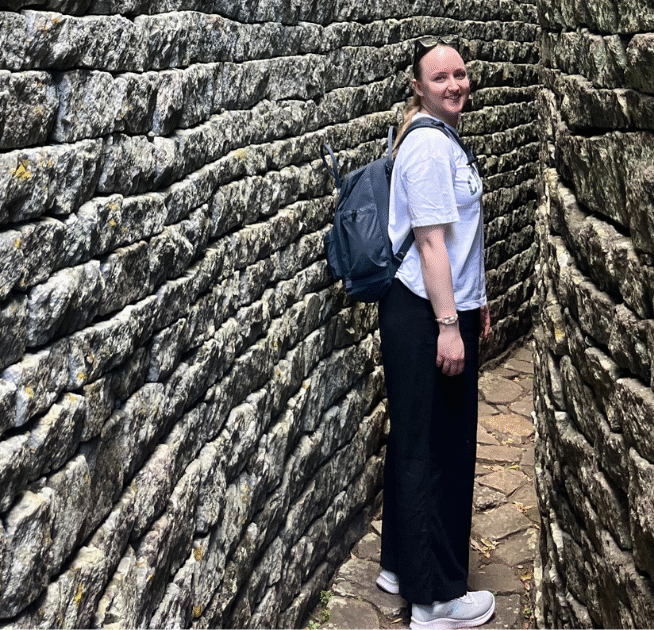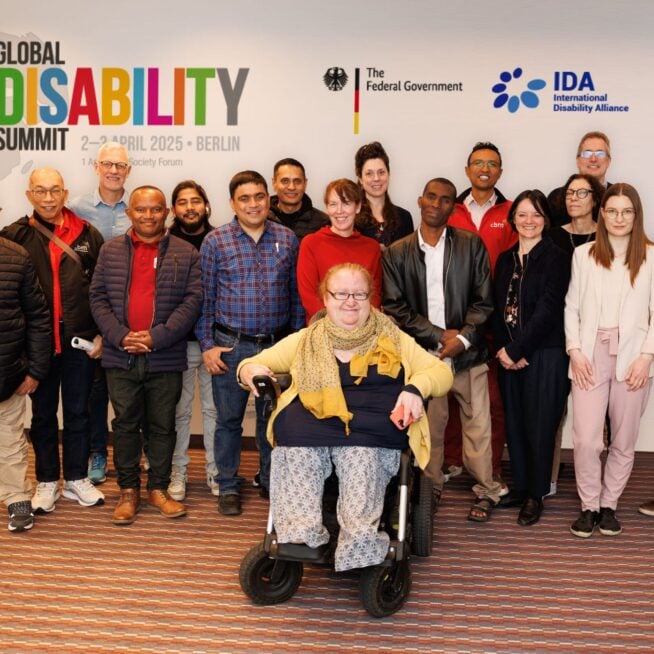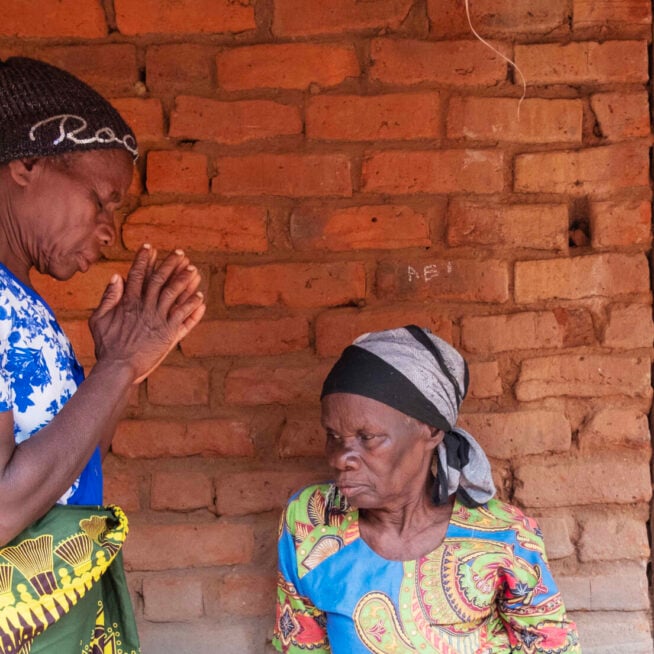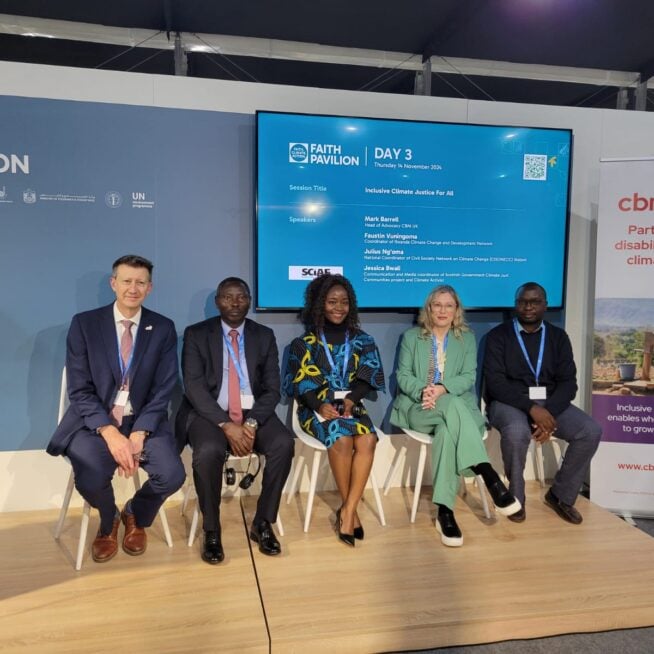Want to transform lives with us? Stay in touch and hear about our news, activities and appeals by email!
OPD Conversations: Building Confidence and Challenging Stigma
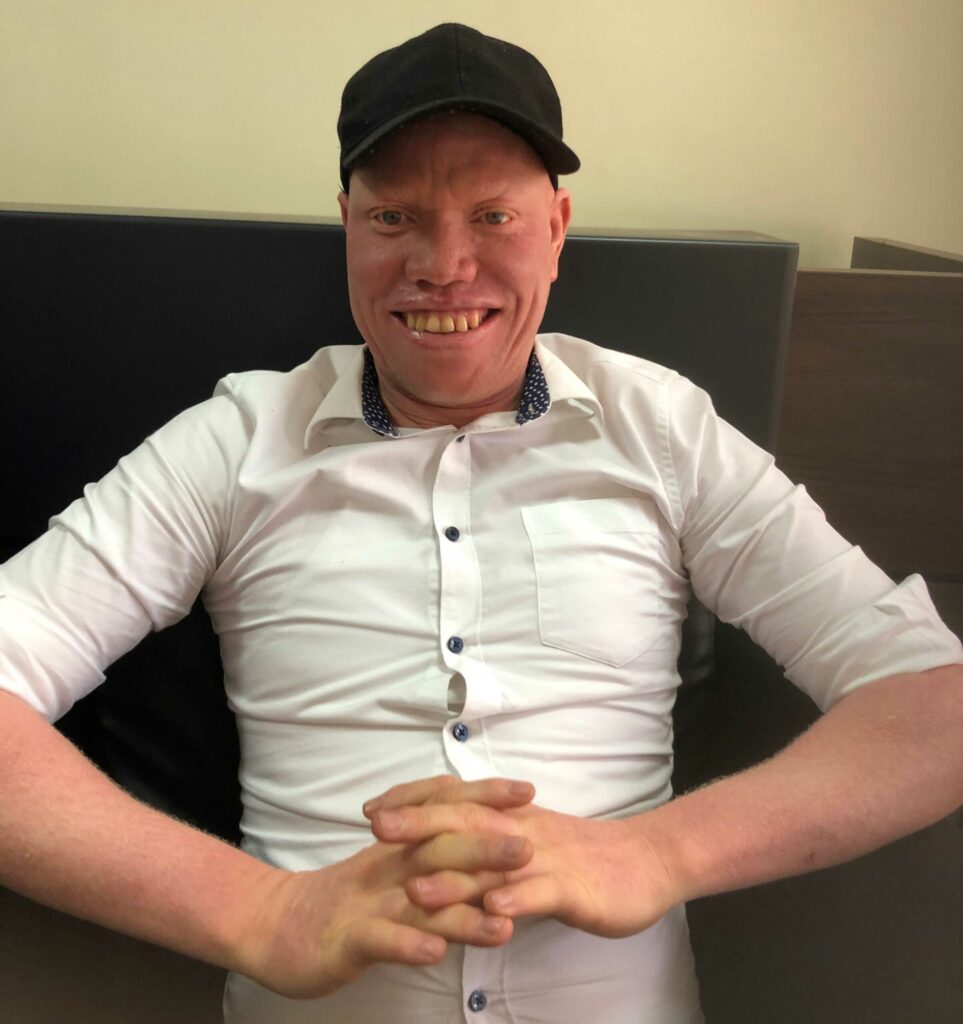
In 2021, CBM UK Chief Executive Kirsty Smith carried out a series of in-person interviews with members of Organisations of Persons with Disabilities (OPDs) in Uganda. All are alumni of the Bridge CRPD-SDG training programme, which builds the capacity of OPD members and disability activists to be advocates for inclusion and the rights of all people with disabilities. This series of blogs explores some of the lessons learnt, challenges faced and successes celebrated that were shared by five disability activists who are leading the way in disability inclusion in Uganda.
This first blog focusses on the impact of the stigma and discrimination faced by people with disabilities. Future posts will explore access to information, the impact of COVID 19 and building a disability movement.
The widespread misconceptions and negative beliefs about disability often increase stigma and lead to prejudice and discrimination against people with disabilities. As a man with albinism, Simon Okwi has experienced significant discrimination: “We’re a target of insults, nicknaming and discrimination because of our colour.”
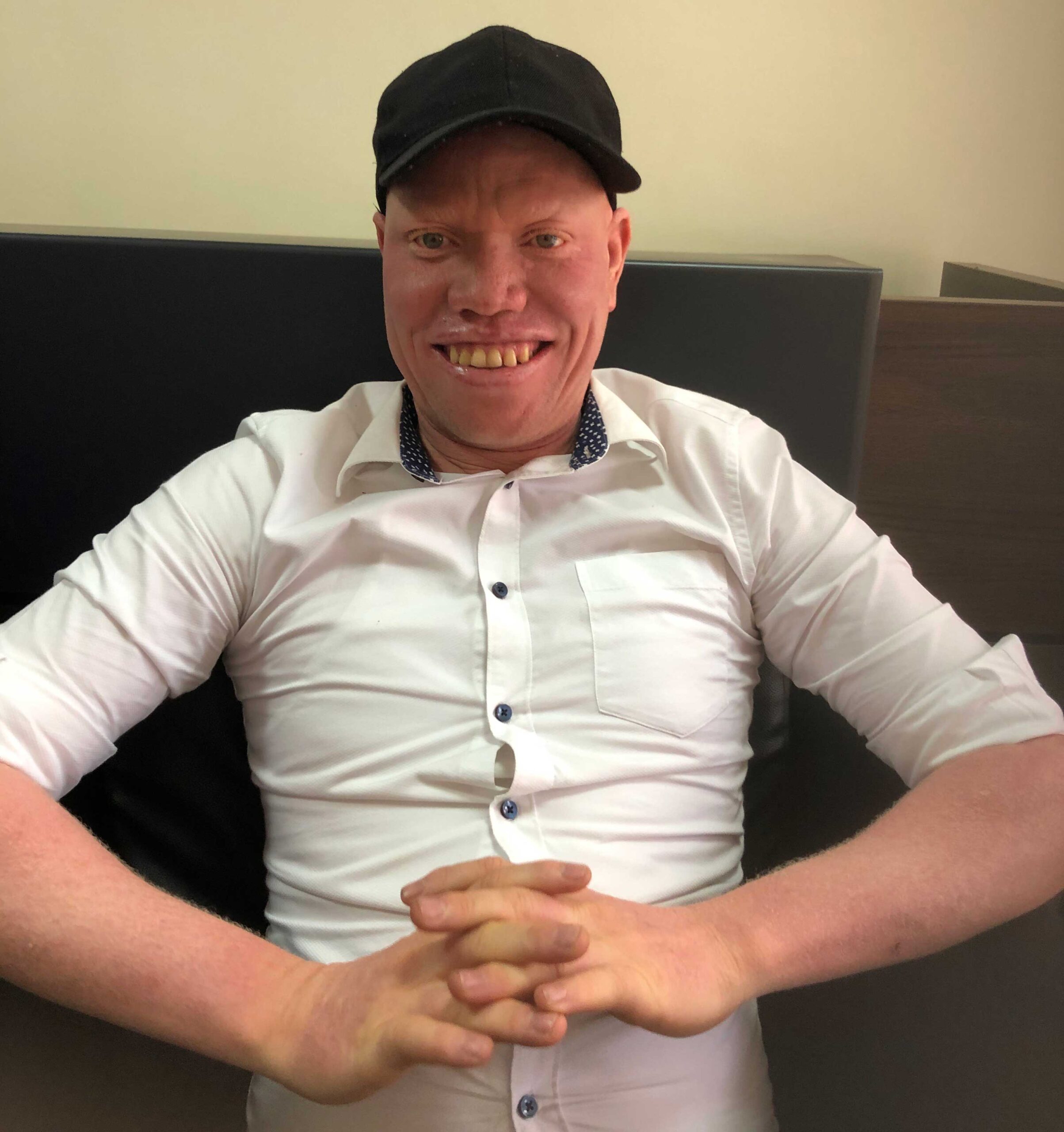
This has impacted on some key areas of Simon’s life. He describes his experience of taking his girlfriend to hospital to deliver their baby:
“On the day of her delivery, it was another person who consented to her going to the theatre, not me. I wasn’t allowed this, I cannot because of my disability. So it was really so hurting, such attitudes and conceptions that they have against a person like me because of my disability. So it was so painful.”
Simon found the Bridge training programme very useful in building his confidence. The skills and understanding of pan-disability that he acquired, and the increased self-assurance he felt as a result, helped him land a highly competitive new job with Downs Syndrome International:
“I was able to understand and know more about other disabilities apart from my disability, because before the training, I had more knowledge [of] my disability alone. But then after the training, my mind was opened to other disabilities too and so because of that knowledge I was able to beat other competitor for the same job.”
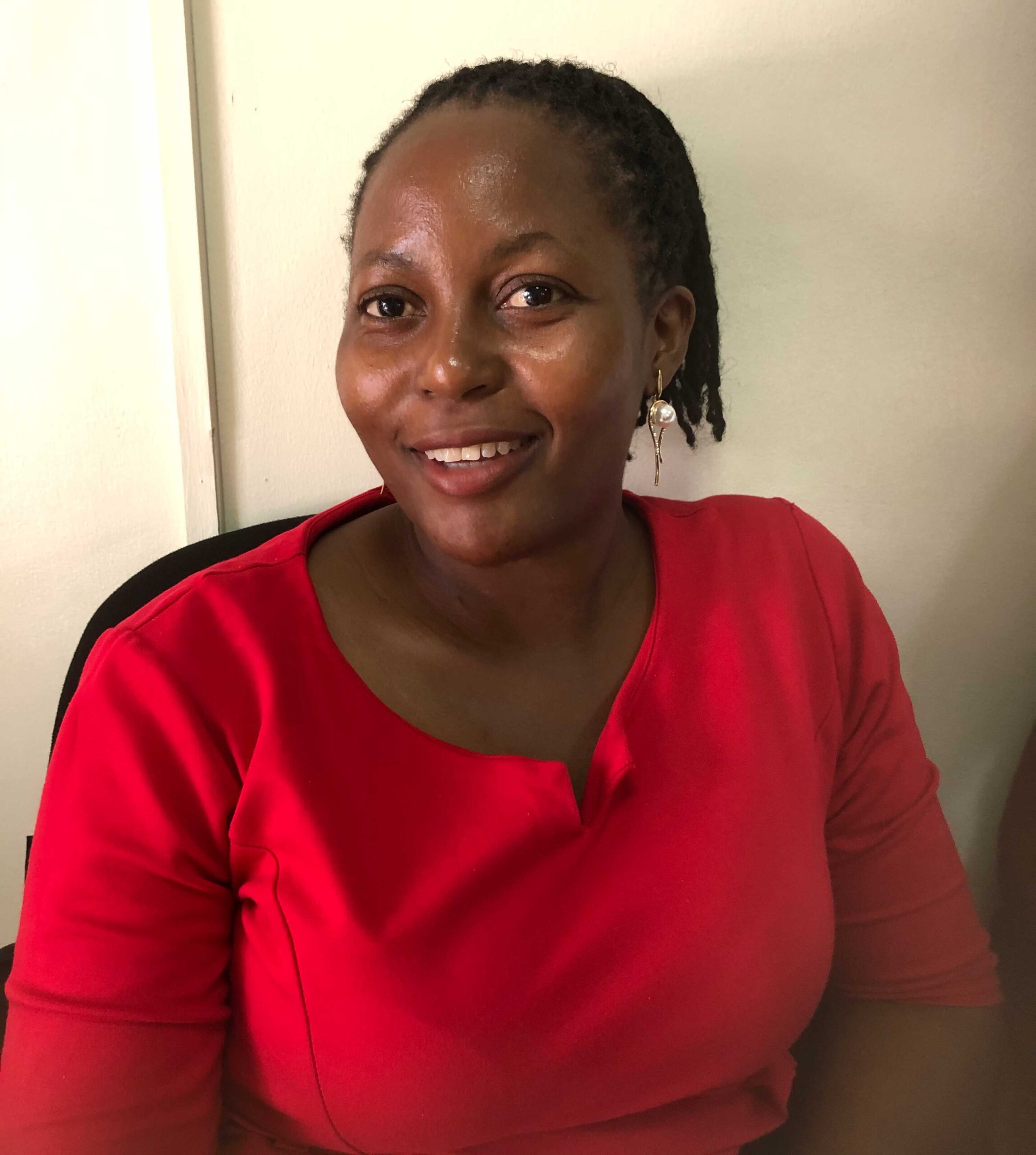
“Self-stigma”, where individuals’ self-belief is affected by the negative attitudes of others, can be as much a barrier as the prejudice from others. Brender Wanyana, who is hard of hearing, used to work as a teacher:
“I was teaching in secondary school, but I got many challenges as a hard of hearing person. Students would ask me questions, I would not answer their questions because I was not hearing them. And every time I had to keep on telling my students ‘Can you speak louder?’ ‘Can you repeat your question?’ So at times, it really hurt me and my students.”
Brender didn’t feel confident in asking for reasonable accommodation:
“Before Bridge [training] I would not have expressed my disability because my disability is invisible. I didn’t know about reasonable accommodation… If I knew more…, maybe [I could have] asked the school to provide reasonable accommodation.”
It is vital that people with disabilities understand their rights if they are to have the confidence to speak up for and claim them as well as to advocate for the rights of other people with disabilities. The Bridge training programme helped Brender to gain the knowledge and the self-assurance to advocate for herself and for the wider disability community. She now works for Ugandan National Association for the Hard of Hearing, and helps to teach others about inclusion:
“I manage to teach young children or young people how to be inclusive, even when they are in school. I am a teacher by profession, so I use the knowledge from Bridge to also teach the children… So I adopted that knowledge from Bridge, inclusiveness.”
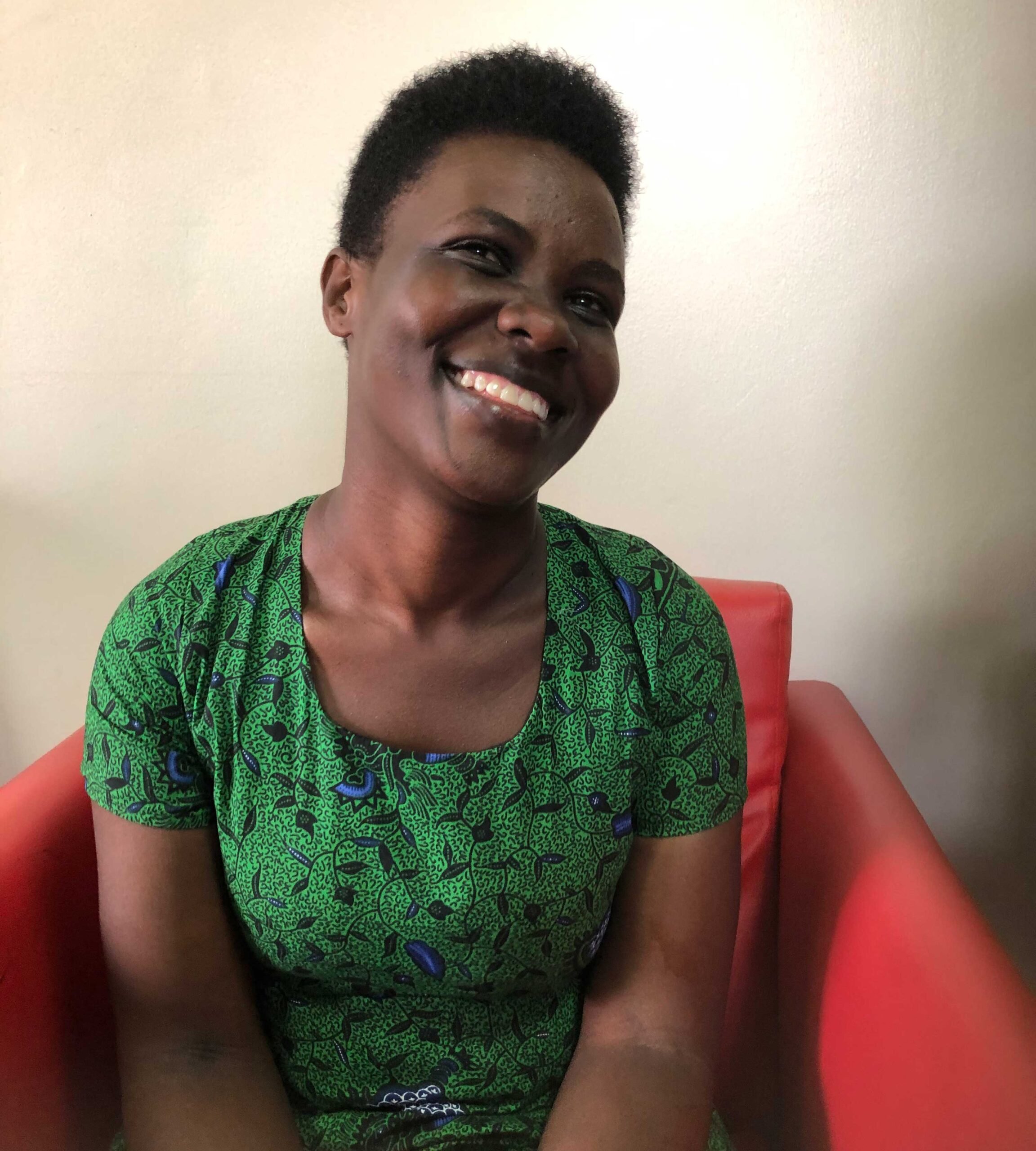
Christine Kirungi is the Executive Director of the Uganda National Association of Cerebral Palsy. She participated in the Bridge training programme in 2018, during which she described her struggle to get an education: https://www.youtube.com/watch?v=oSYgEdZhVAM&list=PLFxbIWhfEaqoy0JAq9eVKk2jkIkNIZVRB&index=3&ab_channel=CBMUK
The negative attitudes that Christine faced as a woman with a disability affected her own self-belief which exacerbated the barriers and exclusion she faced. As a result of BRIDGE disability awareness training, Christine has transformed how she works. “Before I was an activist, for a single category of disability… now, an inclusive advocate, because I know how to take care, and how to include all categories of disability.” She now holds inclusive meetings and training, and her organisation is inclusive of all people with disabilities in their fieldwork and advocacy. But the training has also transformed how she views herself, supporting her to overcome the self-stigma through increased self-confidence:
“I’m now able to compete for jobs. I do apply in the mainstream, and where I get, I know get on merit because I know I’m confident in what I’m doing. So I’m very happy with Bridge to build my capacity and I’m now a real superwoman because of Bridge.”
Stigma can have a huge impact on how people view themselves and interact within their society and at work. In line with the FCDO commitment to challenge discriminatory practices and unjust power relations that result in people with disabilities being left behind, CBM UK is committed to challenging negative perceptions of persons with disabilities, including women with disabilities in all their diversity, and will continue to work closely with our OPD partners to achieve this shift in perception.
Footnote:
Brender, Simon, Christine and Mark are alumni of the CBM-supported Bridge CRPD-SDG training programme. Bridge CRPD-SDGs Training Initiative is an intensive training programme developed by the International Disability Alliance and International Disability and Development Consortium for organisations of persons with disabilities, covering the UN Convention on the Rights of Persons with Disabilities (CPRD) and Sustainable Development Goals (SDGs), to reinforce their advocacy for inclusion and realisation of rights of persons with disabilities.

